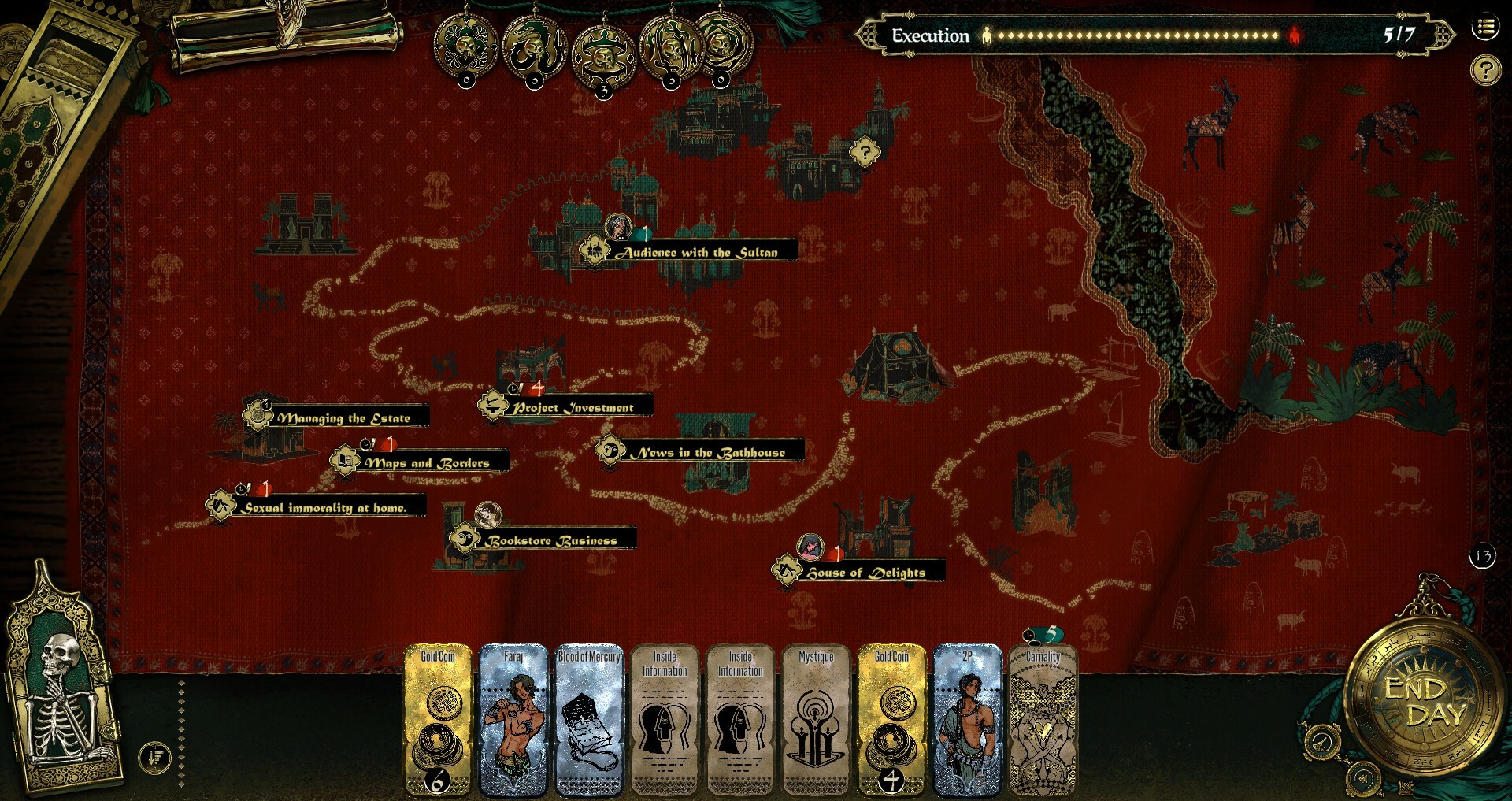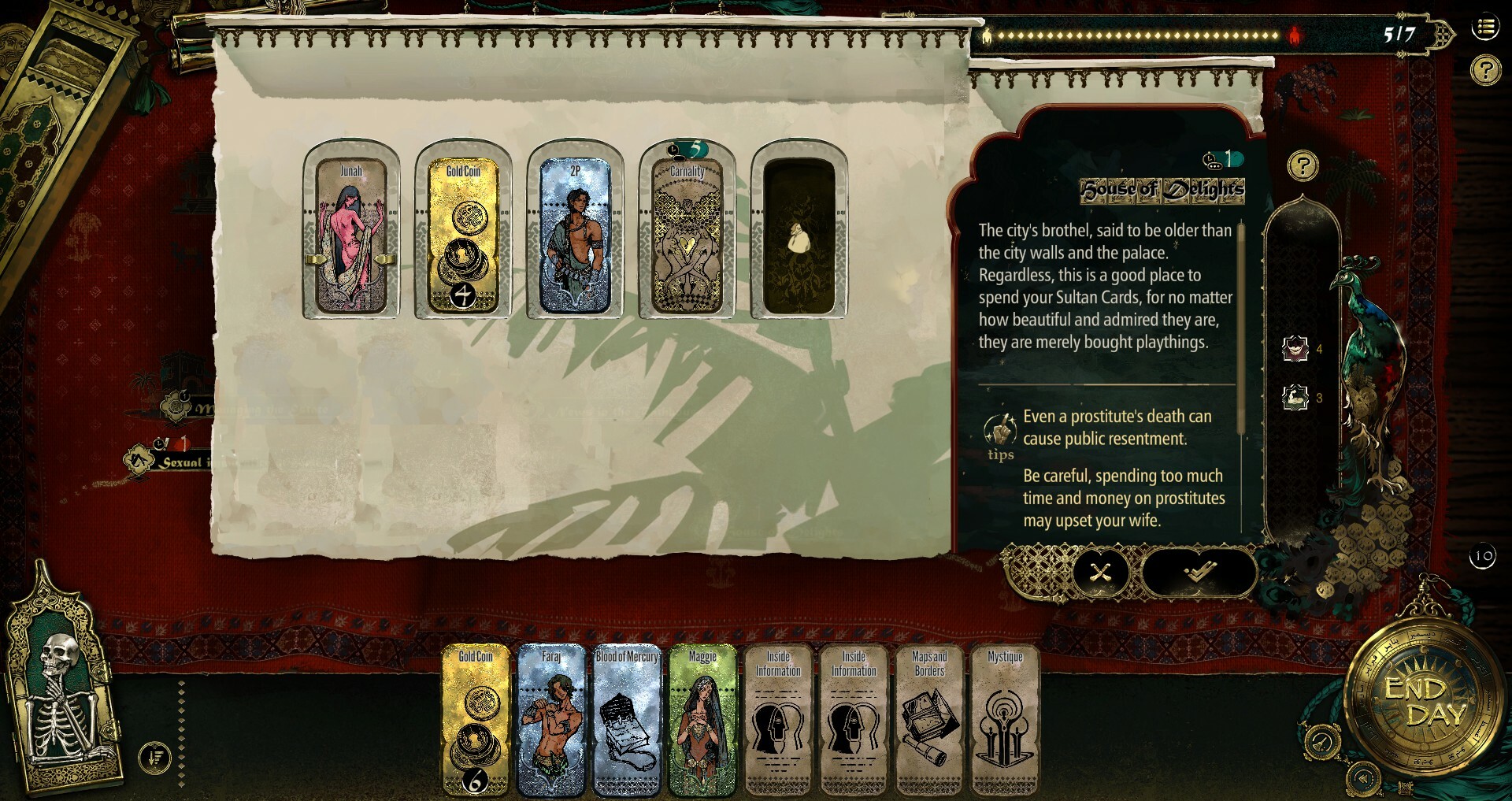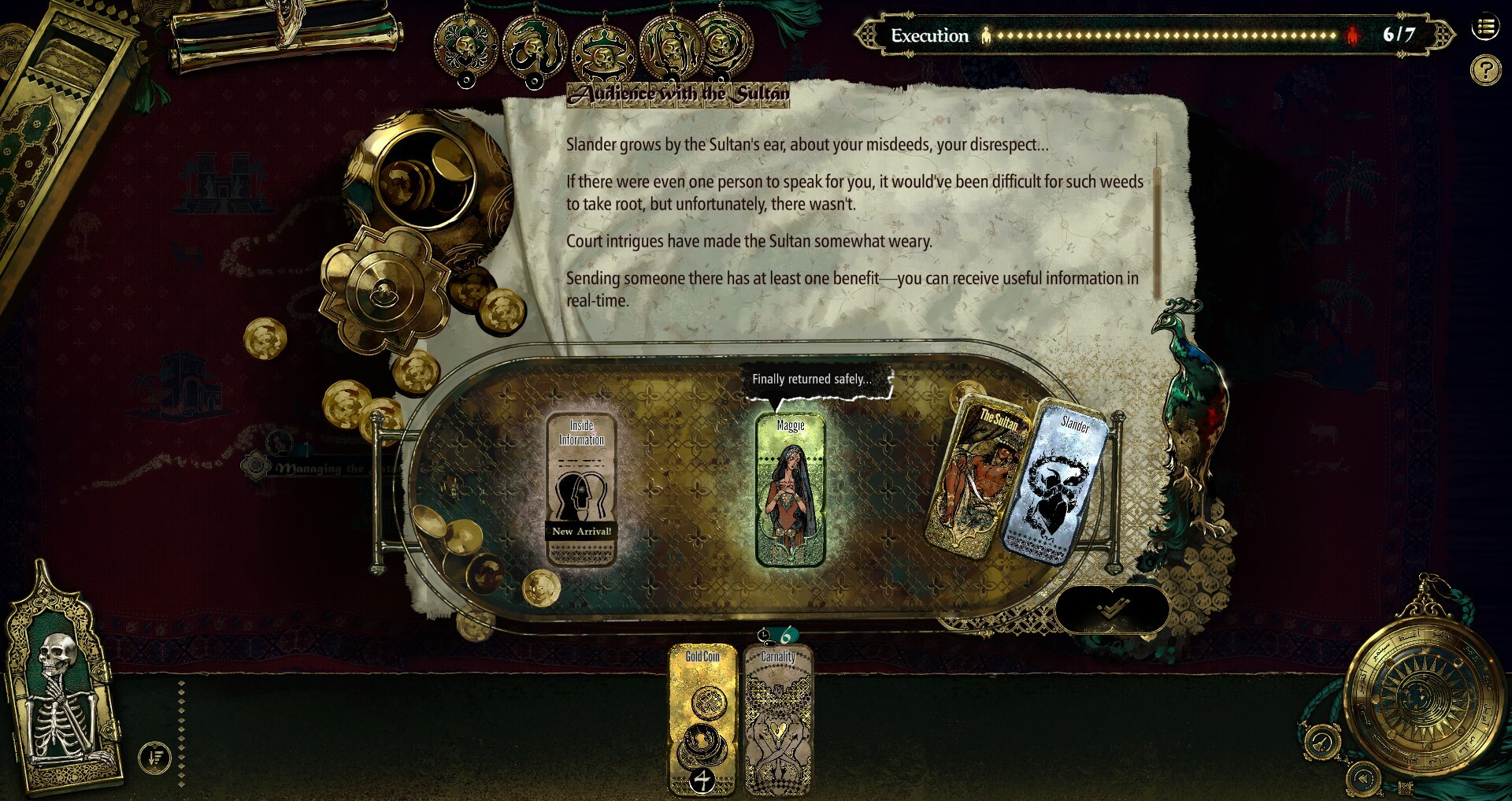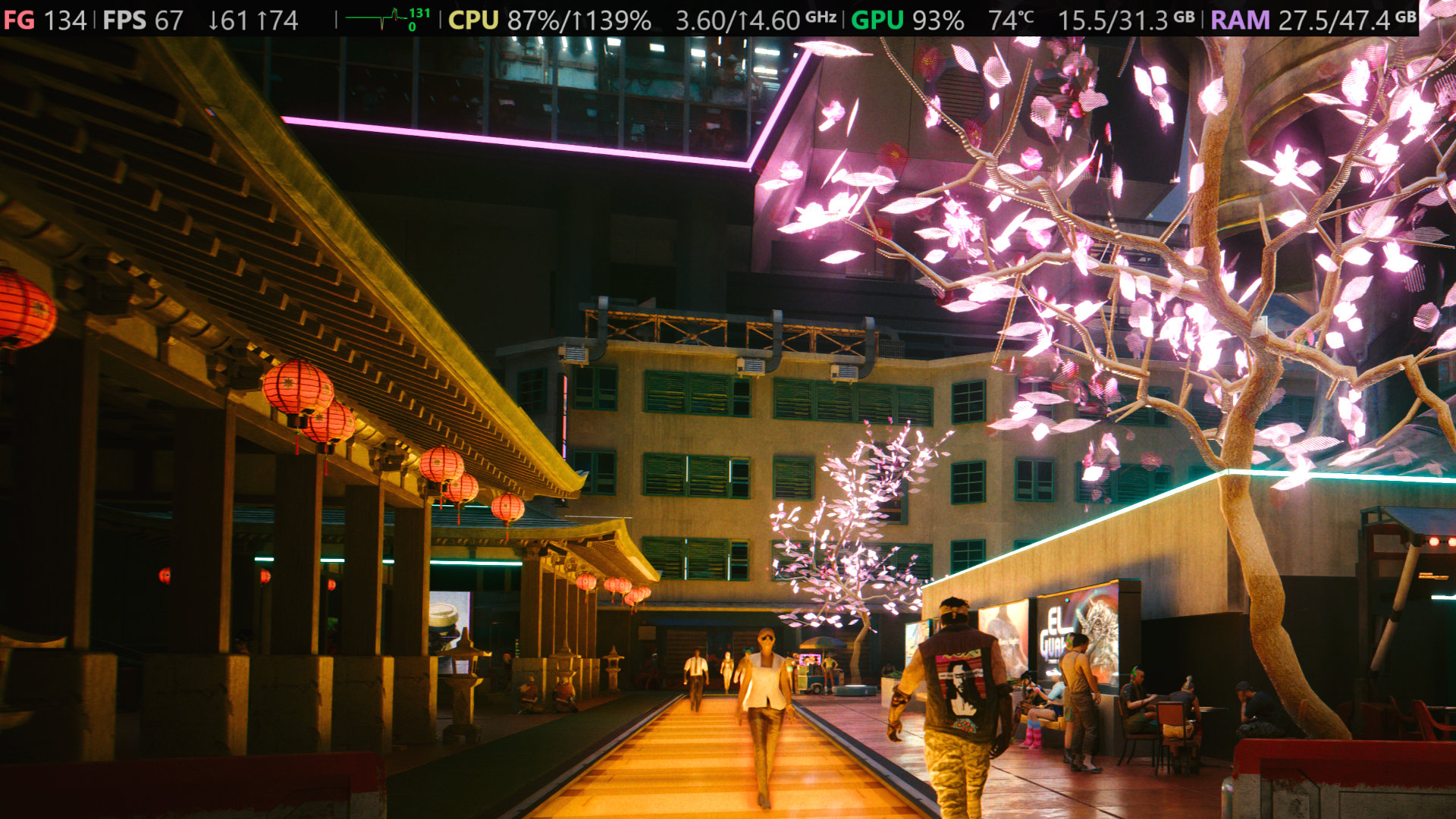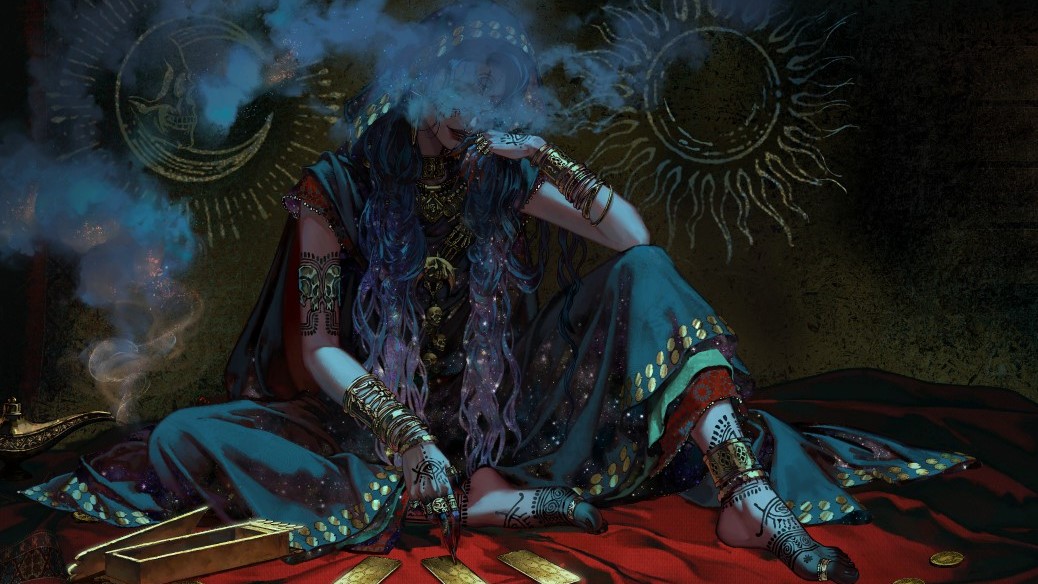
Sultan's Game is a dark and fascinating spiral into sin. With cards!
You know what word I don’t often have a reason to use in this job? “Depraved.” God bless Sultan’s Game for giving me a chance to dust it off.
In this strange and fascinating roguelike, depravity is survival. Chosen by the cruel and decadent Sultan to be his proxy in a mystical card game, you race to stay your own execution by indulging in dreadful excess.
Each round, you draw a “Sultan Card” representing a particular sin: Carnality, Bloodshed, Conquest, or Extravagance. It will have a tier, too, representing what quality of action will fulfill it—a Silver Bloodshed card, for example, can only be satisfied by murdering a person of Silver tier or higher. But where the Sultan himself, with his infinite resources, can easily complete any card he draws, you as a lesser noble of the court must scrabble and scheme to accomplish them.
The result is a game not just about doing bad things to excess, but having to work really hard at it. Success requires sustained manipulation, scheming, murder, and… well, a pretty in-depth knowledge of the local brothel. You’re essentially being forced to be a monstrous, decadent sociopath against your will and beyond your means.
And like a sociopath, you see everyone around you as objects. In play, Sultan’s Game is essentially a strange card game—one in which your hand consists of people, as well as items, money, and even abstract concepts like secrets and omens. Every day, you and each of the people in your inner circle can be assigned to one activity on the city map, in order to generate some kind of resource or event, or complete your current card objective—with the results usually dependent on a skill roll against one of the character’s stats.
A typical day might consist of sending your wife to manage your estate in order to generate some money, your slave to the bookshop to buy you a stat-improving book and listen in on gossip, and your best friend to court to ensure your rivals don’t sway the Sultan against you, while you meet with an old enemy you might be able to lure into some sinful scenario.
But the more you play, the more elaborate the options before you become. Finding enough opportunities to indulge yourself requires frantically exploring the city, buddying up to people you meet, and pursuing strange engagements. You always feel out of your depth, and depending on the luck of the draw it can be difficult to figure out how to complete even just your first Sultan Card when you’re starting out. How, for example, does a man without any territory to capture, or indeed any army to capture it with, fulfil a Gold Conquest card?
The answers are rarely obvious, and with only seven days to complete each one, there’s little time to dawdle. You soon find yourself leaping at any glimmer of opportunity, like a desperate sin addict scrabbling for their next fix. A feeling particularly amplified by the fact that a Sultan Card can never be completed by simply doing something you’ve done before—once you’ve exhausted the brothel, for example, you must turn elsewhere for your Carnality (or Bloodshed…). You’re forced to endlessly chase new highs, leaving a trail of bodies and burned bridges behind you.
One day you’re hunting a white rhino for its hide, the next adopting a mysterious orphan, and by the end of the week you’ve performed a black magic ritual, assassinated a widow to usurp her estate, and ingratiated yourself with a young heir by teaching him your favourite sexual techniques. New lovers, new enemies, new sensations, new locations—you have no choice but to go after them all in a frenzy.
The result is a dark, challenging, and utterly fascinating puzzle. There’s a hint of Crusader Kings to the scheming and political machinations, and a touch of Sunless Sea to its branching, text-driven narrative and resource management, but altogether it’s something unique. And while it plumbs the depths of depravity, it doesn’t feel gratuitous, or like it’s aiming to shock. The clever framing—that you are someone who doesn’t want to do these evil things, but must to survive—ensures it never feels like some sick fantasy. And the sharp writing sticks the landing on its satire of the way those with power come to abuse it.
What I’ve been playing is supposedly just a demo (with the full game due for launch in the first quarter of this year), but after three hours of play I’m yet to notice any kind of limitations or stopping point. Outside of some missing art assets (a few of the characters you meet are simply silhouettes, rather than the gorgeous portraits found on most cards), this seems to already be a substantial portion of the final product.
Is it ironic that a game all about how everything has its price is offering up such a generous free demo? Either way, you shouldn’t hesitate to indulge. I’ve played a lot of roguelike card games but I’ve never had an experience quite like this—and it’s left me with a dark craving for more…
